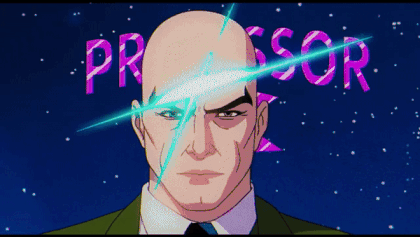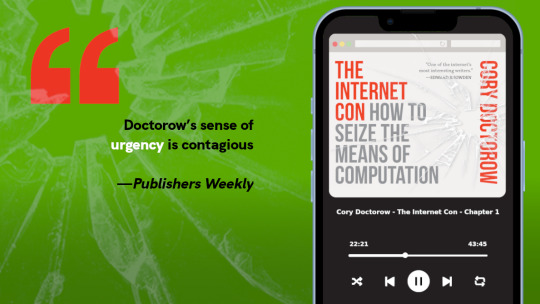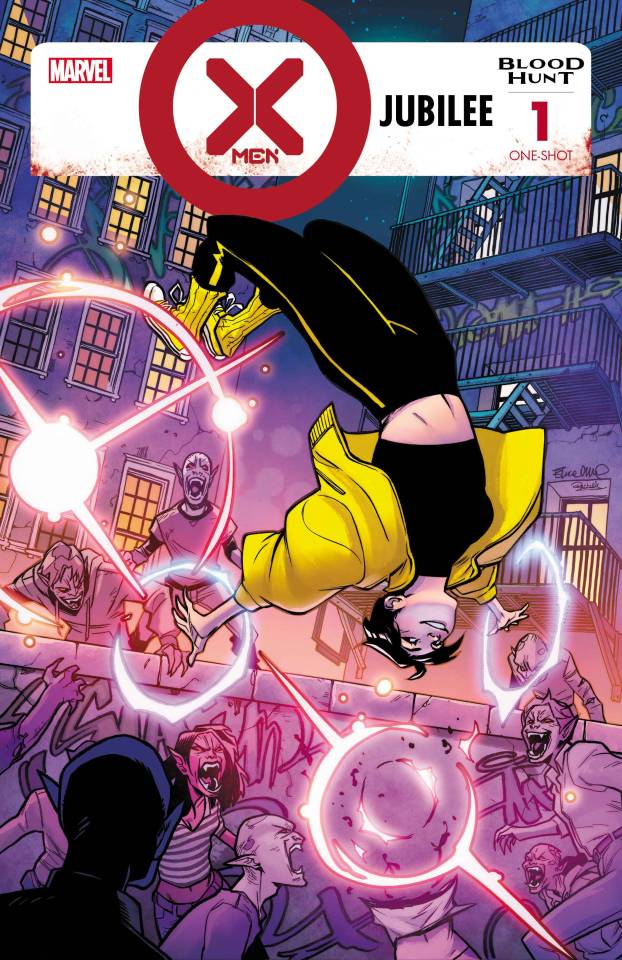#jubilee
Text

All of the Lights
48 notes
·
View notes
Text










I remember reading a couple of pages of "X-Men: The Manga" in a very questionable anonymous imageboard DECADES ago!
Found a working torrent link with (most of) the issues. They work much like "X-Men Adventures", depicting what happens in X-Men: TAS.
Here is a direct link for those who are interested.
It's also the source of this wonderful edit!

#jubilee is indeed very adorable in this style#x men 97#jubilee#beast#morph#gambit#wolverine#jean grey#storm#x men: the animated series#x men: the manga#x men#marvel#post
27 notes
·
View notes
Text

Revenge from the X-Men for Tim breaking up with Jubilee
26 notes
·
View notes
Text
Watching the 1997 X-Men cartoon (not X-Men ‘97, that’s the sequel) and seeing the Sentinel classify Jubilee as only 90 pounds was kinda hilarious. Like honey, get some meat on those goddamn bones, you’ll fly away in a stiff breeze
26 notes
·
View notes
Text

X-Men '97 #1
30 notes
·
View notes
Text


Day 8 of coping
#I realized I can make my childhood comfort ship queer#x men#x men 97#rogue x gambit#romy#rogue#gambit#jubilee#my art
21 notes
·
View notes
Text

Jubilee 4x6 ink and marker drawing. #jubilee #xmen #xmen97 #marvel #fanart
20 notes
·
View notes
Text
Dive into NYX #1 with Stunning Variant Covers!


Get ready to dive into the mutant-filled world of NYX with the stunning variant covers for Collin Kelly, Jackson Lanzing, and Francesco Mortarino’s NYX #1, hitting shelves this July! Marvel Comics has been on a roll, teasing fans with variant covers for Phoenix and X-Force, and now it's time for NYX to shine. The latest reveals feature three breathtaking covers showcasing Laura Kinney, better known as Wolverine.
These incredible covers are brought to you by the talented artists Rogê Antônio, Stanley “Artgerm” Lau, and Todd Nauck.
In the world of NYX, Krakoa may have fallen, but mutantkind is still ready to take on the world. Set in the upcoming From the Ashes era, NYX explores how mutants navigate the challenges of returning to the big city. Penned by Collin Kelly and Jackson Lanzing, with art by Francesco Mortarino, this series delves into the harsh realities of life as mutants face bigotry, mistrust, and misinformation. Without the guidance of the X-Men and the protection of Krakoa, they must rise above the hate and evolve in the face of adversity.
Today, fans can feast their eyes on a new array of variant covers for the debut issue! These covers spotlight Laura Kinney, also known as Wolverine, who originally debuted in the groundbreaking NYX series as X-23. Throughout the new series, watch as she embraces her role and hunts down violent anti-mutant oppressors in the city's darkest corners.
Don't miss out on these incredible covers! Preorder NYX #1 at your local comic shop today and immerse yourself in the thrilling world of mutants. Visit Marvel.com for more information.
NYX #1
Written by COLLIN KELLY & JACKSON LANZING
Art by FRANCESCO MORTARINO
Cover by SARA PICHELLI
Variant Cover by STANLEY “ARTGERM” LAU
Virgin Variant Cover by STANLEY “ARTGERM” LAU
Variant Cover by RO
#uncanny xmen#x men#x-men#marvel comics#wolverine#gambit#jubilee#rogue#nightcrawler#new orleans#gail simone#fall of x#x 23#nyx#from the ashes#x men comics#x men 97
20 notes
·
View notes
Text


















X-Men: The animated series vs X-Men '97 opening
#xmen#x men 97#marvel#storm#xmen storm#ororo munroe#cyclops#scott summers#jean grey#rogue#xmen rogue#beast#xmen beast#hank mccoy#gambit#xmen gambit#remy lebeau#jubilee#jubilation lee#professor x#professor xavier#charles xavier#xmen the animated series#x-men#x-men 97
7K notes
·
View notes
Text

4K notes
·
View notes
Text




X-MEN 97' - 1.01 | To Me, My X-Men
Jubilation Lee and Roberto Da Costa
#xmenedit#marveledit#x-men#x men the animated series#marveladdicts#dailymarvelgifs#marvel#cinemapix#cinematv#solidedit#userthing#dailyflicks#flashing gif#x men 97 spoilers#jubilee#jubilation lee#roberto da costa#sunspot#x men#x men 97#dailyanimatedgifs
3K notes
·
View notes
Text
Paying consumer debts is basically optional in the United States

The vast majority of America's debt collection targets $500-2,000 credit card debts. It is a filthy business, operated by lawless firms who hire unskilled workers drawn from the same economic background as their targets, who routinely and grotesquely flout the law, but only when it comes to the people with the least ability to pay.
America has fairly robust laws to protect debtors from sleazy debt-collection practices, notably the Fair Debt Collection Practices Act (FDCPA), which has been on the books since 1978. The FDCPA puts strict limits on the conduct of debt collectors, and offers real remedies to debtors when they are abused.
But for FDPCA provisions to be honored, they must be understood. The people who collect these debts are almost entirely untrained. The people they collected the debts from are likewise in the dark. The only specialized expertise debt-collection firms concern themselves with are a series of gotcha tricks and semi-automated legal shenanigans that let them take money they don't deserve from people who can't afford to pay it.
There's no better person to explain this dynamic than Patrick McKenzie, a finance and technology expert whose Bits About Money newsletter is absolutely essential reading. No one breaks down the internal operations of the finance sector like McKenzie. His latest edition, "Credit card debt collection," is a fantastic read:
https://www.bitsaboutmoney.com/archive/the-waste-stream-of-consumer-finance/
McKenzie describes how a debt collector who mistook him for a different PJ McKenzie and tried to shake him down for a couple hundred bucks, and how this launched him into a life as a volunteer advocate for debtors who were less equipped to defend themselves from collectors than he was.
McKenzie's conclusion is that "paying consumer debts is basically optional in the United States." If you stand on your rights (which requires that you know your rights), then you will quickly discover that debt collectors don't have – and can't get – the documentation needed to collect on whatever debts they think you owe (even if you really owe them).
The credit card companies are fully aware of this, and bank (literally) on the fact that "the vast majority of consumers, including those with the socioeconomic wherewithal to walk away from their debts, feel themselves morally bound and pay as agreed."
If you find yourself on the business end of a debt collector's harassment campaign, you can generally make it end simply by "carefully sending a series of letters invoking [your] rights under the FDCPA." The debt collector who receives these letters will have bought your debt at five cents on the dollar, and will simply write it off.
By contrast, the mere act of paying anything marks you out as substantially more likely to pay than nearly everyone else on their hit-list. Paying anything doesn't trigger forbearance, it invites a flood of harassing calls and letters, because you've demonstrated that you can be coerced into paying.
But while learning FDCPA rules isn't overly difficult, it's also beyond the wherewithal of the most distressed debtors (and people falsely accused of being debtors). McKenzie recounts that many of the people he helped were living under chaotic circumstances that put seemingly simple things "like writing letters and counting to 30 days" beyond their needs.
This means that the people best able to defend themselves against illegal shakedowns are less likely to be targeted. Instead, debt collectors husband their resources so they can use them "to do abusive and frequently illegal shakedowns of the people the legislation was meant to benefit."
Here's how this debt market works. If you become delinquent in meeting your credit card payments ("delinquent" has a flexible meaning that varies with each issuer), then your debt will be sold to a collector. It is packaged in part of a large spreadsheet – a CSV file – and likely sold to one of 10 large firms that control 75% of the industry.
The "mom and pops" who have the other quarter of the industry might also get your debt, but it's more likely that they'll buy it as a kind of tailings from one of the big guys, who package up the debts they couldn't collect on and sell them at even deeper discounts.
The people who make the calls are often barely better off than the people they're calling. They're minimally trained and required to work at a breakneck pace. Employee turnover is 75-100% annually: imagine the worst call center job in the world, and then make it worse, and make "success" into a moral injury, and you've got the debt-collector rank-and-file.
To improve the yield on this awful process, debt collection companies start by purging these spreadsheets of likely duds: dead people, people with very low credit-scores, and people who appear on a list of debtors who know their rights and are likely to stand on them (that's right, merely insisting on your rights can ensure that the entire debt-collection industry leaves you alone, forever).
The FDPCA gives you rights: for example, you have the right to verify the debt and see the contract you signed when you took it on. The debt collector who calls you almost certainly does not have that contract and can't get it. Your original lender might, but they stopped caring about your debt the minute they sold it to a debt-collector. Their own IT systems are baling-wire-and-spit Rube Goldberg machines that glue together the wheezing computers of all the companies they've bought over the last 25 years. Retrieving your paperwork is a nontrivial task, and the lender doesn't have any reason to perform it.
Debt collectors are bottom feeders. They are buying delinquent debts at 5 cents on the dollar and hoping to recover 8 percent of them; at 7 percent, they're losing money. They aren't "large, nationally scaled, hypercompetent operators" – they're shoestring operations that can only be viable if they hire unskilled workers and fail to train them.
They are subject to automatic damages for illegal behavior, but they still break the law all the time. As McKenzie writes, a debt collector will "commit three federal torts in a few minutes of talking to a debtor then follow up with a confirmation of the same in writing." A statement like "if you don’t pay me I will sue you and then Immigration will take notice of that and yank your green card" makes the requisite three violations: a false threat of legal action, a false statement of affiliation with a federal agency, and "a false alleged consequence for debt nonpayment not provided for in law."
If you know this, you can likely end the process right there. If you don't, buckle in. The one area that debt collectors invest heavily in is the automation that allows them to engage in high-intensity harassment. They use "predictive dialers" to make multiple calls at once, only connecting the collector to the calls that pick up. They will call you repeatedly. They'll call your family, something they're legally prohibited from doing except to get your contact info, but they'll do it anyway, betting that you'll scrape up $250 to keep them from harassing your mother.
These dialing systems are far better organized than any of the company's record keeping about what you owe. A company may sell your debt on and fail to keep track of it, with the effect that multiple collectors will call you about the same debt, and even paying off one of them will not stop the other.
Talking to these people is a bad idea, because the one area where collectors get sophisticated training is in emptying your bank account. If you consent to a "payment plan," they will use your account and routing info to start whacking your bank account, and your bank will let them do it, because the one part of your conversation they reliably record is this payment plan rigamarole. Sending a check won't help – they'll use the account info on the front of your check to undertake "demand debits" from your account, and backstop it with that recorded call.
Any agreement on your part to get on a payment plan transforms the old, low-value debt you incurred with your credit card into a brand new, high value debt that you owe to the bill collector. There's a good chance they'll sell this debt to another collector and take the lump sum – and then the new collector will commence a fresh round of harassment.
McKenzie says you should never talk to a debt collector. Make them put everything in writing. They are almost certain to lie to you and violate your rights, and a written record will help you prove it later. What's more, debt collection agencies just don't have the capacity or competence to engage in written correspondence. Tell them to put it in writing and there's a good chance they'll just give up and move on, hunting softer targets.
One other thing debt collectors due is robo-sue their targets, bulk-filing boilerplate suits against debtors, real and imaginary. If you don't show up for court (which is what usually happens), they'll get a default judgment, and with it, the legal right to raid your bank account and your paycheck. That, in turn, is an asset that, once again, the debt collector can sell to an even scummier bottom-feeder, pocketing a lump sum.
McKenzie doesn't know what will fix this. But Michael Hudson, a renowned scholar of the debt practices of antiquity, has some ideas. Hudson has written eloquently and persuasively about the longstanding practice of jubilee, in which all debts were periodically wiped clean (say, whenever a new king took the throne, or once per generation):
https://pluralistic.net/2020/03/24/grandparents-optional-party/#jubilee
Hudson's core maxim is that "debt's that can't be paid won't be paid." The productive economy will have need for credit to secure the inputs to their processes. Farmers need to borrow every year for labor, seed and fertilizer. If all goes according to plan, the producer pays off the lender after the production is done and the goods are sold.
But even the most competent producer will eventually find themselves unable to pay. The best-prepared farmer can't save every harvest from blight, hailstorms or fire. When the producer can't pay the creditor, they go a little deeper into debt. That debt accumulates, getting worse with interest and with each bad beat.
Run this process long enough and the entire productive economy will be captive to lenders, who will be able to direct production for follies and fripperies. Farmers stop producing the food the people need so they can devote their land to ornamental flowers for creditors' tables. Left to themselves, credit markets produce hereditary castes of lenders and debtors, with lenders exercising ever-more power over debtors.
This is socially destabilizing; you can feel it in McKenzie's eloquent, barely controlled rage at the hopeless structural knot that produces the abusive and predatory debt industry. Hudson's claim is that the rulers of antiquity knew this – and that we forgot it. Jubilee was key to producing long term political stability. Take away Jubilee and civilizations collapse:
https://pluralistic.net/2022/07/08/jubilant/#construire-des-passerelles
Debts that can't be paid won't be paid. Debt collectors know this. It's irrefutable. The point of debt markets isn't to ensure that debts are discharged – it's to ensure that every penny the hereditary debtor class has is transferred to the creditor class, at the hands of their fellow debtors.
In her 2021 Paris Review article "America's Dead Souls," Molly McGhee gives a haunting, wrenching account of the debts her parents incurred and the harassment they endured:
https://www.theparisreview.org/blog/2021/05/17/americas-dead-souls/
After I published on it, many readers wrote in disbelief, insisting that the debt collection practices McGhee described were illegal:
https://pluralistic.net/2021/05/19/zombie-debt/#damnation
And they are illegal. But debt collection is a trade founded on lawlessness, and its core competence is to identify and target people who can't invoke the law in their own defense.

Going to Defcon this weekend? I’m giving a keynote, “An Audacious Plan to Halt the Internet’s Enshittification and Throw it Into Reverse,” today (Aug 12) at 12:30pm, followed by a book signing at the No Starch Press booth at 2:30pm!
https://info.defcon.org/event/?id=50826


I’m kickstarting the audiobook for “The Internet Con: How To Seize the Means of Computation,” a Big Tech disassembly manual to disenshittify the web and bring back the old, good internet. It’s a DRM-free book, which means Audible won’t carry it, so this crowdfunder is essential. Back now to get the audio, Verso hardcover and ebook:
http://seizethemeansofcomputation.org

If you’d like an essay-formatted version of this post to read or share, here’s a link to it on pluralistic.net, my surveillance-free, ad-free, tracker-free blog:
https://pluralistic.net/2023/08/12/do-not-pay/#fair-debt-collection-practices-act
#pluralistic#jubilee#debts that cant be paid wont be paid#Patrick McKenzie#patio11#bits about money#debt#debt collection#do not pay#bottom feeders#Fair Debt Collection Practices Act#fdcpa#finance#armbreakers
11K notes
·
View notes
Text




X-men art dump!
#kurt wagner#logan howlett#wolverine#nightcrawler#cyclops#scott summers#ororo munroe#storm#xmen#x men 97#jubilee
3K notes
·
View notes
Text



X-23/Laura Kinney art
#marvel#marvel comics#gabby kinney#honey badger#X-23#laura kinney#jubilee#jubilation lee#art#illustration#wolverine#x-mem
4K notes
·
View notes
Text


No Freaking way….
#shut up alex#personal#marvel#marvel universe#x men 97#x men#magneto#bishop#gambit#beast#wolverine#jubilee#rogue#cyclops#jean grey#erik lehnsherr#lucas bishop#remy lebeau#remy etienne lebeau#hank mccoy#henry mccoy#james howlett#james logan howlett#logan howlett#jubilation lee#anne marie lebeau#anne marie#scott summers
2K notes
·
View notes
